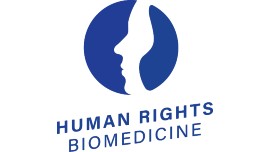An International Conference on « Emerging Technologies and Human Rights » took place on 4-5 May 2015 in Strasbourg.
The Conference aimed at identifying priority human rights challenges raised by emerging technologies and their convergence. Its conclusions were used as a basis for a white paper prepared by the DH-BIO.The Conference promoted interdisciplinary debate with lawyers and experts in Human Rights, scientists, sociologists, philosophers as well as other experts in the fields concerned. All participants in the Conference were invited to take part in the debate.
Convergence of emerging technologies, i.e. nano-, bio-, IT and cognitive technologies has opened new perspectives for progress, particularly with regards in human health. For instance, treating symptoms of Parkinson's disease is possible due to deep brain stimulation; nanotechnologies combined with IT already facilitate rapid diagnostics and monitoring of patients’ health parameters. However, these technologies also open new possibilities for interventions on human beings, which may be more invasive and intrusive, and possibly affect and modify individuals.
Such developments raise questions particularly in regards to a person’s autonomy, integrity and privacy.
- Are neurodevices implanted in the brain potentially challenging the free will of the person concerned?
- What could be the consequences of the convergence between, for example, nanotechnologies and ICT for the protection of our personal data?
- Who will have access to the applications of these technologies?
- Will the current governance in place be challenged by the blurring of lines between the biomedical field and other fields of application for these technological developments?





